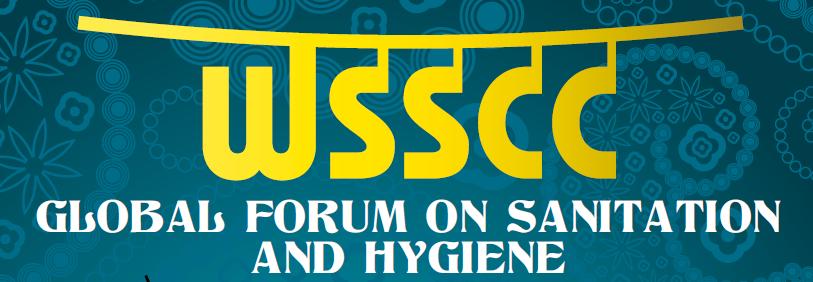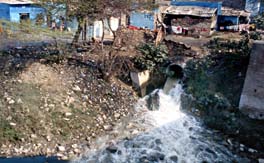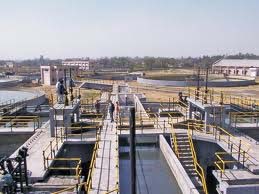/topics/health
Health
Live feed: WSSCC Global Forum on Sanitation & Hygiene - 9-14 October 2011, Mumbai
Posted on 13 Oct, 2011 10:22 AM
We all know the statistics: 2.6 billion people around the world are without access to a basic toilet. Diarrhoea – the vast majority of it due to poor sanitation and hygiene – is the second biggest killer of children worldwide.
Between us, we also have many of the answers. We have experiences of low-cost technologies that are acceptable and affordable for poor communities in rural areas. We have been involved in designing communications programmes that have contributed to sustained behaviour change.
We have seen governments and civil society working together to set up policies and programmes that ensure access to better sanitation in challenging settings, such as crowded informal settlements in fast-growing megacities. We have also seen businesses grow up around sanitation and hygiene, allowing individuals to make a dignified living and clients to buy the sorts of products and services they want and need.
Social exclusion and policy recommendations for the 12th Plan - WASH News and policy update
Posted on 11 Oct, 2011 09:52 PMContent courtesy: India WASH Forum
Women and water - A collection of papers - Economic and Political Weekly - Volume XLVI - Number 18 - April 30 (2011)
Posted on 07 Oct, 2011 07:31 PMIt does this in the context of the new decentralised governance structures that are based on the assumption that domestic water supply is the legitimate domain of women and thus power and authority needs to be granted to women to manage water resources.
However, there is a very little understanding of how this has benefited women and what are the challenges experienced during the process of implementation or the outcomes gained from these processes, in the context of the Indian society that continues to propogate patriarchal values and is based on structures that are inherently hierarchical and inequitable.
Some of the papers dwell on and explore the inherent biases in the literature and make an attempt to understand their implications for women in managing water resources, while some of the papers share case studies on the outcomes of the implementation of the decentralised water management policies at the village level.
Jalanidhi-2 programme of the Kerala Rural Water Supply and Sanitation Agency
Posted on 06 Oct, 2011 03:20 PMThis report deals with environmental assessment and environmental management framework for the World Bank supported Jalanidhi-2 programme of the Kerala Rural Water Supply and Sanitation Agency (KRWSA), an important player in rural water supply and sanitation sector of the state.
Polluted river stretches in India: Criteria and status - A report by Central Pollution Control Board
Posted on 04 Oct, 2011 10:53 PMThis brief report by the Central Pollution Control Board (CPCB) presents an analysis of the monitoring of the water quality in India under the National Water Quality Monitoring Programme. The water quality data for the years 2002-2008 has been analysed and monitoring locations exceeding the water quality criteria have been identified as polluted locations with respect to risk.
Water and wastewater analysis – A guide manual by Central Pollution Control Board
Posted on 03 Oct, 2011 10:14 PM This guide manual on water and wastewater analysis prepared by the Central Pollution Control Board (CPCB), caters to the need of evolving a simplified code of practice for the lab
This guide manual on water and wastewater analysis prepared by the Central Pollution Control Board (CPCB), caters to the need of evolving a simplified code of practice for the lab
Institutionalization of users' level - Water quality monitoring and surveillance in Gujarat - A report by WASMO
Posted on 26 Sep, 2011 11:39 AMThe programme focused on community involvement in assessing and evaluating water quality.
Revised guidelines for the centrally sponsored scheme of Common Effluent Treatment Plants (CETPs) - Ministry of Environment & Forests, 2011
Posted on 25 Sep, 2011 06:03 PM
Image courtesy: www.projectsmonitor.com
Under the Water (Prevention and Control of Pollution) Act, 1974, every industry has to provide adequate treatment of its effluents before disposal, irrespective of whether it is in stream, land, sewerage system of sea. The small scale industrial units (SSI), which are presently defined as units whose plant and machinery are valued at less than Rs. 5 crore occupy an important place in the country's economy. The SSIs are a major contributor to the total industrial pollution load of the country. However, only a small fraction of the effluent discharge from these units is estimated to be treated as on date.
Water for Indian cities - Government practices and policy concerns - Issue Brief - Observer Research Foundation
Posted on 24 Sep, 2011 04:50 PMThe urban expansion in India has not been met by a similar expansion in infrastructure and basic services. This has severely affected the quality of urban life and economic growth.





